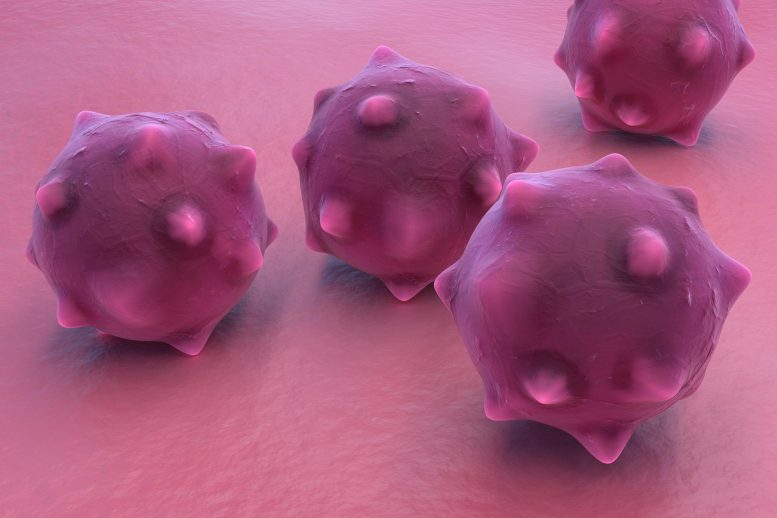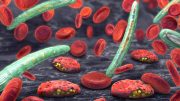
New research has established a direct link between high insulin levels in patients with obesity and Type 2 diabetes and an increased risk of pancreatic cancer. This groundbreaking study demonstrates how excess insulin overstimulates pancreatic acinar cells, leading to inflammation and precancerous cells, particularly in the case of pancreatic ductal adenocarcinoma (PDAC). These findings highlight the importance of maintaining healthy insulin levels and may lead to new strategies for cancer prevention and treatment, including lifestyle interventions and targeted therapies.
The first detailed explanation of why individuals with obesity and Type 2 diabetes face a heightened risk of pancreatic cancer.
A recent study conducted by scientists at the Faculty of Medicine of the University of British Columbia has uncovered a direct connection between elevated insulin levels, which are frequently observed in individuals with obesity and Type 2 diabetes, and pancreatic cancer.
The study, published in Cell Metabolism, provides the first detailed explanation of why people with obesity and Type 2 diabetes are at an increased risk of pancreatic cancer. The research demonstrates that excessive insulin levels overstimulate pancreatic acinar cells, which produce digestive juices. This overstimulation leads to inflammation that converts these cells into precancerous cells.
“Alongside the rapid increase in both obesity and Type 2 diabetes, we’re seeing an alarming rise in pancreatic cancer rates,” said co-senior author Dr. James Johnson, a professor in the department of cellular and physiological sciences and interim director of the Life Sciences Institute at UBC. “These findings help us understand how this is happening, and highlights the importance of keeping insulin levels within a healthy range, which can be accomplished with diet, exercise, and in some cases medications.”

Dr. James Johnson, a professor in the department of cellular and physiological sciences and interim director of the Life Sciences Institute at UBC. Credit:
UBC Faculty of Medicine
The study focused on pancreatic ductal adenocarcinoma (PDAC), the most prevalent pancreatic cancer, and one that is highly aggressive with a five-year survival rate of less than 10 percent. The incidence of pancreatic cancer is on the rise. By 2030, PDAC is expected to become the second leading cause of cancer-related deaths.
Insulin’s Role in Pancreatic Cancer
While obesity and Type 2 diabetes had previously been established as risk factors for pancreatic cancer, the exact mechanisms by which this occurred remained unclear. This new study sheds light on the role of insulin and its receptors in this process.
“We found that hyperinsulinemia directly contributes to pancreatic cancer initiation through insulin receptors in acinar cells,” said Dr. Anni Zhang, the study’s first author who recently graduated with their PhD from UBC. “The mechanism involves increased production of digestive enzymes, leading to heightened pancreatic inflammation.”
Implications for Cancer Prevention and Treatment
While insulin is widely recognized for its role in regulating blood sugar levels, the study underscores its importance in pancreatic acinar cells. The findings show that insulin supports the physiological function of these cells in producing digestive enzymes that break down fat-rich foods, but at high levels, its increased action can inadvertently foster pancreatic inflammation and the development of precancerous cells.
The findings may pave the way for new cancer-prevention strategies and even therapeutic approaches that target insulin receptors in acinar cells.
“We hope this work will change clinical practice and help advance lifestyle interventions that can lower the risk of pancreatic cancer in the general population,” said co-senior author Dr. Janel Kopp, assistant professor in the department of cellular and physiological sciences at UBC. “This research could also pave the way for targeted therapies that modulate insulin receptors to prevent or slow the progression of pancreatic cancer.”
Potential for Broader Cancer Research
In collaboration with researchers at BC Cancer and the Pancreas Centre BC, the team has initiated a clinical trial to help patients diagnosed with PDAC control their blood sugar and circulating insulin levels with the help of an endocrinologist.
The researchers say the findings may have implications for other cancers associated with obesity and Type 2 diabetes, where elevated insulin levels may also play a contributing role in disease initiation.
“Colleagues in Toronto have shown similar connections between insulin and breast cancer,” said Dr. Johnson. “In the future, we hope to determine whether and how excess insulin might contribute to other types of obesity- and diabetes-driven cancers.”
Reference: “Hyperinsulinemia acts via acinar insulin receptors to initiate pancreatic cancer by increasing digestive enzyme production and inflammation” by Anni M.Y. Zhang, Yi Han Xia, Jeffrey S.H. Lin, Ken H. Chu, Wei Chuan K. Wang, Titine J.J. Ruiter, Jenny C.C. Yang, Nan Chen, Justin Chhuor, Shilpa Patil, Haoning Howard Cen, Elizabeth J. Rideout, Vincent R. Richard, David F. Schaeffer, Rene P. Zahedi, Christoph H. Borchers, James D. Johnson and Janel L. Kopp, 31 October 2023, Cell Metabolism.
DOI: 10.1016/j.cmet.2023.10.003
The study was funded by the Canadian Institutes of Health Research and the Lustgarten Foundation.









I wonder if they’ll ever find a link between high insulin levels and highly processed food?
My mother died of ductal pancreatic cancer in 1993. She was overweight, but not badly. However, I don’t think Steve Jobs or Audrey Hepburn were overweight or diabetic. I’m curious about what happens with some people who don’t fit your studies’ profile. Also, I take insulin to help control my blood sugar, so can this use actually cause the cancer?